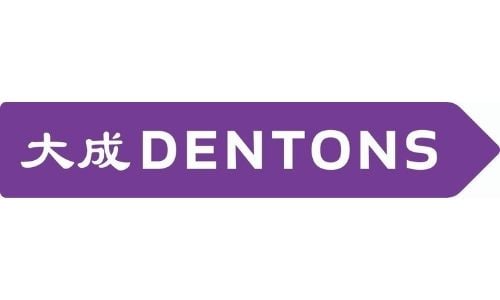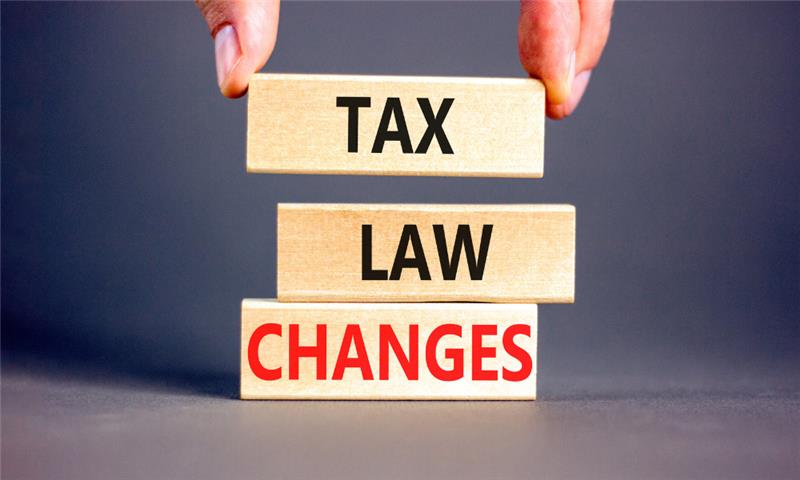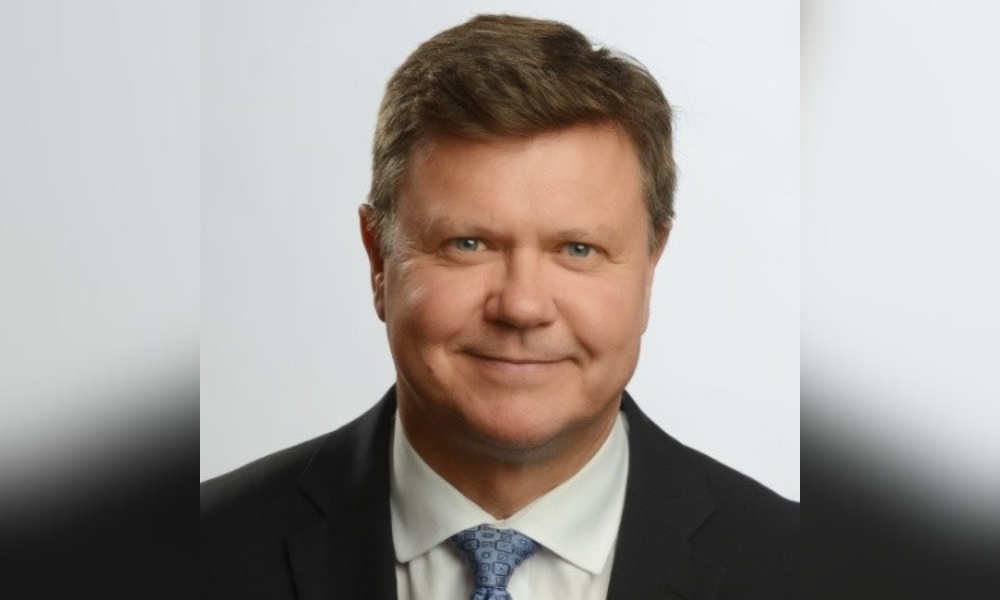After a period of intense market interest in 2021, investment in psychedelics has cooled somewhat, although results from clinical trials remain positive. Lexpert spoke with Kimberly Burns, Rose M. Carter, Karen Gardiner, and Rocky Swanson of Dentons about where the psychedelic industry is now, and where it might go next.
- While psychedelics like psilocybin (magic mushrooms) remain illegal on a federal level, some cities like Vancouver and Toronto have decriminalized possession in certain circumstances. Is this foreshadowing a path to legalization? What experiences can be gained from Canada’s legalization of cannabis?
Psychedelics are positively portrayed as promising medications to treat depression, anxiety, and post-traumatic stress disorder (“PTSD”), among other conditions. The 2020 Netflix documentary, Have a Good Trip, explored the view that potential threats of psychedelics are largely exaggerated. This year, Australia became the first country in the world to legalize the medicinal use of psychedelics. From July 1, 2023, Australian physicians are allowed to prescribe MDMA (better known by the street names, ecstasy or molly) to treat PTSD, and psilocybin, the hallucinogenic substance found in “magic mushrooms,” to cope with treatment-resistant depression.[1]
While some Canadian cities have decided to decriminalize the possession of small amounts of illicit drugs, including psilocybin, it is important to distinguish between decriminalization and legalization. Decriminalization can be viewed as a harm reduction mechanism to assist in reducing stigma and ensuring those using illicit drugs feel that they can access support when it is needed. Even where decriminalization of possession of illicit drugs is in place, without broader changes, possession of larger amounts as well as the production and sale of these drugs is still illegal.
Generally, the recreational use of psychedelics is illegal in Canada: under the Controlled Drugs and Substances Act (“CDSA”). They are classified as “controlled substances”,[2] meaning that with limited exceptions or unless an exemption is granted, possession, sale, import, export, production, transfer and transport is prohibited. When considered necessary for a medical or scientific purpose or otherwise in the public interest, The Canadian Minister of Health (the “Minister”) may grant an exemption under Section 56 of the CDSA (a “Section 56 Exemption”) from any or all provisions of the act.[3]
Despite expanding awareness in medical literature and popular culture, Health Canada has been selective in granting access to Section 56 Exemptions and the special access program, discussed further below. For example, in July 2022, over 100 Canadian healthcare practitioners applied to the Federal Court for a judicial review of a Health Canada decision rejecting their application to use psychedelics in psilocybin-assisted psychotherapy[4], and the City of Toronto is waiting on a potential Section 56 Exemption from a January 2022 application[5].
On January 16, 2023, Alberta became the first Canadian province to regulate the medicinal use of psychedelics, though access to psychedelics through the new regime is still subject to several provincial restrictions as well as the federal regulatory regimes outlined in this Article.[6]
The College of Physicians & Surgeons of Alberta (“CPSA”) regulates physicians and surgeons holding Alberta licensure to practice medicine in the Province. The CPSA also sets facility accreditation standards for all aspects of the practice of psychedelic-assisted psychotherapy. In Alberta, it is necessary for a facility wishing to provide psychedelic-assisted psychotherapy to first be assessed and accredited by the CPSA. The facility must submit an application to the CPSA requesting an assessment.
Under the Mental Health Services Protection Regulation[7], psychedelic-assisted psychotherapy must be provided within a CPSA-accredited medical facility by a psychiatrist or a physician in consultation with a psychiatrist. Patients require a referral from their physician to be treated at a psychedelic-assisted psychotherapy facility.[8]
The CPSA provides standards of practice to be adhered to by physicians holding CPSA licensure.[9] As of April 2023, the CPSA does not have a Standard of Practice specifically addressing psychedelic-assisted psychotherapy although the CPSA's Standard of Practice “Practicing Outside of Established Conventional Medicine” is applicable to facilities and physicians practicing in the area of psychedelic-assisted psychotherapy, Physicians are required to provide assessments and diagnoses consistent with the standards of conventional medicine and be informed by current best-available evidence. Thus, a patient must be offered a conventional medical approach before being offered any therapy outside of conventional medicine. In addition, the CPSA expects its members to practice within the CPSA Standards of Practice relating to “Informed Consent” and “Prescribing: Drugs Associated with Substance Use Disorders or Substance-Related Harms”. Finally, licensed psychedelic drug treatment service providers are required to report to the Ministry of Health any serious injury or death that occurs in relation to the provision of services. The CPSA has advised that accredited standards to support the provision of psychedelic-assisted psychotherapy will be made available in the next few months to further facilitate safer use of therapy and community settings.[10]
While there are clear similarities between psilocybin and cannabis, when comparing the legalization trajectory for the two, biotech experts involved in the development of psychedelic products warn against the direct comparison of this sector with the cannabis industry and any resulting heightened expectations of psychedelics.[11]
Prior to the 2018 Cannabis Act[12], both cannabis and psilocybin were regulated under the CDSA. Importantly, however, cannabis was also included in the Narcotic Control Regulations (“NCR”)[13], which meant that it was part of the legislative framework for medical access to a subset of drugs regulated by the CDSA. Psilocybin is not listed in either the NCR or the Benzodiazepine and Other Targeted Substances Regulations (“BOTSR”)[14], leaving it positioned further from standardized access for medical purposes than cannabis was in 2017. Given the seventeen years between the medical legalization and the recreational legalization of cannabis in Canada[15], we appreciate that when speaking of psychedelics legalization industry players mean the medicinal use of these substances and agree that it is generally still too early to discuss the legalization of recreational psychedelics.
At the same time, no one denies that the psychedelics sector remains an attractive industry that has great potential, before and after Canada legalizes the use of these substances. The first economic results of cannabis legalization show that the legal manufacturing and sale of illicit substances is a lucrative business: In the three years since recreational marijuana became legal, the cannabis sector has contributed $43.5 billion to Canada's GDP.[16] By 2021, the industry had created 98,000 jobs across the country. In October 2022, Health Canada launched a review of the Cannabis Act and the overall impact of the cannabis sector on the Canadian economy. Even though the results of the review have not been made public yet, cannabis legalization is generally viewed as an economic success. This precedent for economic growth may assist our Canadian legislators in creating a path to monetize the medical legalization of psychedelics.
- What is the regulatory status of psychedelics as medications? What pathways exist for a practitioner to access psychedelics for the medical treatment of a patient?
In Canada, drugs used as medical therapy are regulated by the Food and Drugs Act (“FDA”)[17] and the Food and Drug Regulations (“FDR”)[18] made under the FDA as well as, if applicable, the CDSA and its regulations. In addition to being classified as controlled drugs under the CDSA, many psychedelic substances, including psilocybin, are classified as “restricted drugs” pursuant to Part J of the FDR. Traditionally, restricted drugs have been considered to not have an approved medical use and, unless authorized under the CDSA and its regulations, possession of such substances is generally prohibited under the FDR.
The NCR and BOTSR are the two sets of regulations that enable the use of drugs subject to the CDSA pursuant to a prescription from a practitioner and in various other situations. Most psychedelic drugs, including psilocybin (but with ketamine being a notable exception), are not listed in the respective schedules to these regulations, and therefore a prescription from a practitioner does not on its own authorize their possession and use by patients.
Despite these prohibitions, clinical trials, which are discussed further below, and Section 56 Exemptions offer options for patients to legally access psychedelic therapy. Section 56 of the CDSA grants the Canadian Minister of Health discretionary power to exempt persons, classes of persons, or classes of controlled substances from the application of any provisions of the CDSA or its regulations for a scientific or medical purpose, or where a purpose is in the public interest. In January 2022, Health Canada issued a Section 56 class exemption (the “Class Exemption”) for practitioners, certain agents of practitioners, pharmacists, persons in charge of a hospital, hospital employees and licensed dealers to conduct certain activities with psilocybin and MDMA[19]. The practical effect of the Class Exemption is that healthcare providers can provide psychedelic therapy with psilocybin or MDMA obtained through Canada’s special access program (“SAP”), discussed below, to patients without being in contravention of the CDSA. [20] Notably, the Class Exemption does not extend to patients themselves, which means that patients taking advantage of the Class Exemption must have the therapy administered to them by their practitioner or the practitioner’s agent.
- How have recent changes to Canada’s Special Access Program affected how practitioners can access psychedelic therapy for their patients?
The SAP, authorized under Division 8 of the FDR, allows practitioners to request access to drugs that have not received market authorization in Canada for the emergency treatment of patients in their care. Requests for unauthorized drugs through the SAP must provide sufficient evidence to support the use of the drug for the patient’s condition, and, if applicable, the requesting practitioner must meet the practitioner requirements under the CDSA. SAP requests are assessed on a case-by-case basis, and access to therapy through the program is intended to be limited in duration and quantity to meet emergency needs only. Practitioners are responsible for reporting adverse drug reactions and whether the drug produced positive outcomes for a patient receiving therapy through the program. If a request through the SAP is granted, a Letter of Authorization is issued, which permits the manufacturer of the requested drug to legally sell a specified quantity of the drug to the requesting practitioner, although the manufacturer is under no obligation to do so.[21]
As a result of regulatory amendments implemented in 2013, restricted drugs, including psilocybin and other psychedelic therapies, were not eligible for the SAP, leaving clinical trials or a Section 56 Exemption as the only means for patients to access these therapies. In 2022, Health Canada recognized that the science pertaining to the efficacy and safety of certain restricted drugs had continued to advance and in response lifted the prohibition against restricted drugs being accessed through the SAP.[22] As a result, psilocybin and other psychedelic therapies can once again be requested through the SAP for emergency treatment purposes.
Authorization through the SAP only permits a manufacturer to sell a drug that has not received market authorization in Canada, to a practitioner. This means that for most psychedelic therapies, a Section 56 Exemption is required for practitioners, as well as pharmacists and other healthcare providers involved in the care of a patient, and patients to possess and administer or receive the therapy.
- What have been some recent trends with respect to the certification of clinical trials for psychedelic therapy?
Prior to the 2022 changes to the FDR restoring access to restricted drugs through the SAP, clinical trials were one of the only ways patients could legally access psychedelic therapy, though historically opportunities to participate in clinical trials with psychedelic drugs in Canada have been limited. More recently, clinical trials investigating psilocybin and MDMA have been approved by Health Canada. An early March 2023 review of Health Canada’s clinical trials database revealed that there are four ongoing trials investigating psilocybin and two ongoing trials investigating MDMA across several mental health indications.
Clinical trials in Canada are regulated under Division 5 of Part C of the FDR. The FDR requires that good clinical practice is utilized during a clinical trial, including that each individual involved in the conduct of the clinical trial is qualified by education, training, and experience to perform their respective tasks. Given the regulatory status of psychedelic drugs, insufficient experience with their use may have contributed to the relatively few clinical trials to date. However, there have been a number of educational programs launched recently through or in conjunction with major Canadian post-secondary institutions that may provide opportunities for interested parties to gain knowledge and experience around psychedelic therapy.[23]
Another recent development has been the approval by Health Canada of clinical trials involving take-home “microdoses” of psilocybin. Since November 2022, Apex Labs Ltd. (“Apex”), a Vancouver, British Columbia-based pharmaceutical company has received no objection letters from Health Canada with respect to two proposed clinical trials involving take-home doses of psilocybin. These clinical trials include what the company claims to be the first take-home psilocybin clinical trial in North America and the largest take-home psilocybin trial in the world as of the time of their respective approvals.[24] [25]
- A couple of years ago, the psychedelics sector was the subject of huge interest in the North American capital markets. Since 2021, market interest seems to have cooled a bit. Why did the markets adjust and what does that mean for the industry going forward?
Psychedelic stocks soared in 2020. This popularity coincided with an increase in measured depression, anxiety, and other mental health conditions heightened by the COVID-19 pandemic. Promising new ways of treating mental health illnesses, psychedelics have been seen as an attractive investment opportunity. According to the research firm Psilocybin Alpha, psychedelics start-ups raised nearly $766m from public and private investors worldwide in 2020, which was 11 times more than in 2019.[26] This trend continued in 2021 with $2bn of investments. However, in 2022, only a quarter of the 2021 amount - $520m was invested in the sector.[27]
Two primary reasons can be cited for this market cooling. First, it takes time to develop a marketable product from an innovative idea when it must be supported by positive clinical trial results. In this nascent industry, delay is inevitable because of the need for regulatory approval, and many start-up companies are working through the regulatory process to proceed with their business plans. Second, rising interest rates have made investors less willing to wait for years to receive a return on their capital. Together the regulatory timeline and the change in the overall economy reduced the appetite for investors to explore innovative, worthy ideas that mature slowly.[28]
Many reports predict growth in the psychedelics sector, which we view as inevitable, but the speed of this growth will depend on regulatory efficiency and medical legalization. If the Australian legalization precedent proves to be successful, more jurisdictions can be expected to follow suit. Canadian biotech companies are urging the legal community to use its influence to advocate for the legalization of the medicinal use of psychedelics and the availability of these products to patients.[29]
Setting aside the need for medical legalization and regulatory approvals, to move forward and evolve into a robust industry the psychedelics sector has to resolve certain challenges presented by the unique nature of its products. The first challenge ironically lies in the efficacy of psychedelics treatment. As research and clinical trials of psychedelics are continuing, more data suggests that just a few medical sessions may cure previously untreatable mental health conditions. However, the efficacy of the therapy may pose a threat to the long-term profitability of psychedelics companies.[30] The industry will need to prove that it is profitable to entice the pharmaceutical industry away from reliance on long-term prescriptions as a source of revenue.
In the same vein, a second challenge is the current expense of therapies to consumers. To be safe and effective as medical treatments, the available psychedelic products are consumed in clinical settings under the supervision of therapists who received specific training. This limited access drives the price of psychedelic therapy. According to some estimates, each treatment may cost up to $3,000, raising a question as to the affordability of the products.[31] Convincing consumers to outlay significant sums, rather than continue on a regular prescription with a low monthly cost, will take time and evidence of the success of therapies.
Finally, a significant third challenge for the development of the psychedelics sector lies in the sphere of intellectual property. As some biotech companies are investing millions of dollars in clinical trials to persuade regulatory bodies that psychedelics are safe and beneficial for the treatment of some mental health conditions, they want to patent their products. However, the psychedelic components of these products, such as MDMA or psilocybin, have been known for a long time, so biotech companies will find it challenging to prove the novelty component for their patent applications. Furthermore, some researchers and psychedelics advocates oppose the practice of obtaining patents for psychedelic substances, as they believe that those patents will chill academic research and will make new therapies prohibitively expensive.[32]
- Do you have any other insights you’d like to share?
While we see potential in the psychedelic sector going forward, industry participants will need what every new business needs: time, support, and investors that believe in the future of the products. It is important to keep in mind that, as was the case in the early stages of the cannabis industry, not every start-up developing psychedelic products will have the capabilities to fund its operations long enough to become profitable. Since developers of psychedelics products need to work in a highly-regulated environment, biotech companies with regulatory expertise may have an advantage. Support for psychedelics exists in Canada though we see the industry developing slowly, similar from a regulatory standpoint to the decades-long cannabis legalization process. Culturally consumer acceptance and understanding will likely take time.
The recent emergence of take-home therapy options may spur some of the necessary general acceptance, at least on the medical therapy front. As disclosed by Apex, participants in its recently announced take-home clinical trial will receive “microdoses” of synthetically produced psilocybin[33]. Microdoses are said to be sub-perceptual in that consumption of the therapy at such doses does not produce psychoactive effects typically associated with psychedelic substances but may still show therapeutic benefits. Given that studies involving psychedelic medications have typically been conducted in observed and controlled settings with psychological supports readily available to the patient, the ability to isolate the effects of the psychedelic medication independently from these settings and other supports has been difficult. [34] Take-home dosing may mitigate this issue and, if the medications prove to be effective and safe when taken by patients outside of a controlled clinical setting, the increased versatility may in turn increase focus and enthusiasm for these therapies and the companies providing them. In addition, therapeutic options that can be taken at home, without psychoactive effects ancillary to the therapeutic pharmacodynamics of the medication, may drive consumer acceptance of these therapies.
***
 Kimberly is an accomplished, results driven corporate partner with genuine enthusiasm for her practice in Dentons’ Corporate group. Kimberly has extensive experience advising clients on public and private mergers and acquisitions, commercial agreements, corporate governance, international structuring, and partnering agreements. She balances ebb and flow of transactional work with ongoing strategic advice for the executive teams of global and Canadian businesses, finding satisfaction in building relationships and connecting people.
Kimberly is an accomplished, results driven corporate partner with genuine enthusiasm for her practice in Dentons’ Corporate group. Kimberly has extensive experience advising clients on public and private mergers and acquisitions, commercial agreements, corporate governance, international structuring, and partnering agreements. She balances ebb and flow of transactional work with ongoing strategic advice for the executive teams of global and Canadian businesses, finding satisfaction in building relationships and connecting people.
***
 Based in Edmonton, Rose brings more than 30 years’ experience in the health law field. She assists various medical practitioners (physicians (including numerous IMGs), dentists, nurses and other health care practitioners), as well as scientific professionals, navigate the regulatory requirements of private and public practice, including assisting physicians wishing to expand their practices in to the field of Non Hospital Surgical Facilities. Throughout her three decades of practice, Rose as a litigator has appeared before all levels of courts in Alberta, as well as before various administrative law tribunals.
Based in Edmonton, Rose brings more than 30 years’ experience in the health law field. She assists various medical practitioners (physicians (including numerous IMGs), dentists, nurses and other health care practitioners), as well as scientific professionals, navigate the regulatory requirements of private and public practice, including assisting physicians wishing to expand their practices in to the field of Non Hospital Surgical Facilities. Throughout her three decades of practice, Rose as a litigator has appeared before all levels of courts in Alberta, as well as before various administrative law tribunals.
***
 Karen Gardiner is a senior associate in Dentons’ Vancouver office. She is a member of the Corporate practice group.
Karen Gardiner is a senior associate in Dentons’ Vancouver office. She is a member of the Corporate practice group.
Karen has extensive experience working with private and public companies, advising on projects and transactions in a variety of industry sectors including oil and gas, mining, rail, infrastructure, transportation (road and rail freight), and wine products.
***
 Rocky Swanson (He/Him/His) is an associate in the Corporate, Securities, and Mergers and Acquisitions groups of the Dentons Toronto office. He has a general transactional law practice focusing on corporate and commercial law, mergers and acquisitions, and corporate finance. Prior to joining Dentons, Rocky practiced as an associate at a leading Canadian law firm where he acted for clients in a wide range of industries, including life sciences, biotech, and pharma. He also worked in a number of pharmacy-related roles with Canada’s largest pharmacy retailer.
Rocky Swanson (He/Him/His) is an associate in the Corporate, Securities, and Mergers and Acquisitions groups of the Dentons Toronto office. He has a general transactional law practice focusing on corporate and commercial law, mergers and acquisitions, and corporate finance. Prior to joining Dentons, Rocky practiced as an associate at a leading Canadian law firm where he acted for clients in a wide range of industries, including life sciences, biotech, and pharma. He also worked in a number of pharmacy-related roles with Canada’s largest pharmacy retailer.
The authors would like to thank Jaskaran Grewal and Ana Iordache, articling students at Dentons for their valuable research and contributions to this article.
[1] Katharine Lang, “Mental Health Treatments: Australia OKs MDMA, Psilocybin, but What Does This Mean?” (3 February 2023), online: Medical News Today https://www.medicalnewstoday.com/articles/mental-health-treatments-australia-oks-mdma-psilocybin-but-what-does-this-mean
[2] See Controlled Drugs and Substances Act, S.C. 1996, c. 19, s. 2(1), Schedule I and Schedule III
[3] “Exemption from Controlled Drugs and Substances Act” (1 February 2023), online: Government of Canada https://www.canada.ca/en/health-canada/services/health-concerns/controlled-substances-precursor-chemicals/policy-regulations/policy-documents/exemption-personal-possession-small-amounts-certain-illegal-drugs-british-columbia.html
[4] Fakiha Baig, “More than 100 Health-Care Professionals Challenge Rejection of Psilocybin Access: (11 July 2022), online: CBC News https://www.cbc.ca/news/canada/manitoba/psilocybin-assisted-therapy-health-minister-rejection-1.6517530
[5] “Exemption Request” (4 January 2022), online: Toronto Public Health https://www.toronto.ca/wp-content/uploads/2022/01/943b-TPH-Exemption-Request-Jan-4-2022-FNLAODA.pdf
[6] “Psychedelic Drug Treatment Service Provider Licensing” (January 2023), online: Province of Alberta https://www.alberta.ca/psychedelic-drug-treatment-service-provider-licensing.aspx
[7] https://open.alberta.ca
[8] https://cpsa.ca/facilities-clinics/accreditation/psychedelic-assisted-psychotherapy/
[9] College of Physicians & Surgeons of Alberta Standards of Practice Practicing Outside of Established Conventional Medicine January 1, 2021
[10] College of Physicians & Surgeons of Alberta Medical Matters: Psychedelic-assisted Psychotherapy Accreditation Standards coming soon, April, 2023, medical matters posted April 13, 2023
[11] Jameson Berkow, “Fundamental Value’ in Psychedelics Remains Despite Market Downturn” (17 August 2022), online: Psychedelics Canada https://psychedelicscanada.org/media/2022/08/globe-and-mail-fundamental-value-in-psychedelics-remains-despite-market-downturn
[12] Cannabis Act, S.C. 2018, c. 16.
[13] Narcotic Control Regulations, C.R.C., c. 1041.
[14] Benzodiazepines and Other Targeted Substances Regulations, SOR/2000-217.
[15] John Tattrie & Eli Yarhi, “Cannabis Legalization in Canada” (17 October 2019), online: The Canadian Encyclopedia https://www.thecanadianencyclopedia.ca/en/article/marijuana-legalization-in-canada
[16] “An Industry Makes its Mark – The Economic and Social Impact of Canada’s Cannabis Sector” (2021), online: https://www2.deloitte.com/content/dam/Deloitte/ca/Documents/consumer-business/ca-en-consumer-business-cannabis-annual-report-2021-AODA.pdf
[17] Food and Drugs Act, R.S.C., 1985, c. F-27.
[18] Food and Drug Regulations, C.R.C., c. 870.
[19] “Subsection 56(1) class exemption for practitioners, agents, pharmacists, persons in charge of a hospital, hospital employees, and licensed dealers to conduct activities with psilocybin and MDMA in relation to a special access program authorization” (5 January, 2022), online: Government of Canada https://www.canada.ca/en/health-canada/services/health-concerns/controlled-substances-precursor-chemicals/policy-regulations/policy-documents/subsection-56-1-class-exemption-conducting-activities-psilocybin-mdma-special-access-program-authorization.html
[20] Regulations Amending Certain Regulations Relating to Restricted Drugs (Special Access Program), SOR/2021-271
[21] Guidance Document: Special Access Program for Drugs: Guidance Document for Industry and Practitioners (April 2022), online: Health Canada https://www.canada.ca/content/dam/hc-sc/documents/services/drugs-health-products/special-access/drugs/guidance/sap-drugs-guid-ld-eng.pdf
[22] Regulations Amending Certain Regulations Relating to Restricted Drugs (Special Access Program), SOR/2021-271.
[23] Rush, B., Marcus, O., Shore, R., Cunningham, L., Thompson, N., & Rideout, K. (2022). Psychedelic medicine: A rapid review of therapeutic applications and implications for future research. online: Homewood Research Institute https://hriresearch.com/research/exploratory-research/research-reports/
[24] Apex Labs Ltd., “Apex Labs Granted Approval for North America’s First Take Home Psilocybin Clinical Trial (1 November, 2022), online: Cision https://www.newswire.ca/news-releases/apex-labs-granted-approval-for-north-america-s-first-take-home-psilocybin-clinical-trial-850091797.html
[25] Apex Labs Ltd., “Apex Labs Granted Approval for 294 Patient Take Home Psilocybin Clinical Trial” (19 January, 2023), online: Cision https://www.newswire.ca/news-releases/apex-labs-granted-approval-for-294-patient-take-home-psilocybin-clinical-trial-881074976.html (“Apex 2023”)
[26] “Psychedelic Funding in 2022”, online: Psychedelic Alpha https://psychedelicalpha.com/news/psychedelic-funding-in-2022
[27] Psychedelic Alpha, supra 26.
[28] Chris Bryant, “Magic Mushrooms Are Giving Investors a Bad Trip” (13 April, 2022), online: Bloomberg https://www.bloomberg.com/opinion/articles/2022-04-14/psychedelics-stocks-like-atai-life-sciences-are-having-a-bad-psilocybin-trip
[29] Lucy Saddleton, “Psychedelics Industry Gains Momentum” (22 November, 2022), online: Canadian Lawyer https://www.canadianlawyermag.com/inhouse/news/features/psychedelics-industry-gains-momentum/371694
[30] Bryant, supra 28.
[31] Bryant, supra 28.
[32] Andrew Jacobs, “With Promise of Legalization, Psychedelic Companies Joust Over Future Profits” (25 October 2022), online: The New York Times https://www.nytimes.com/2022/10/25/health/psychedelic-drug-therapy-patents.html
[33] Apex 2023, supra 25
[34] Rush et al, supra 23





